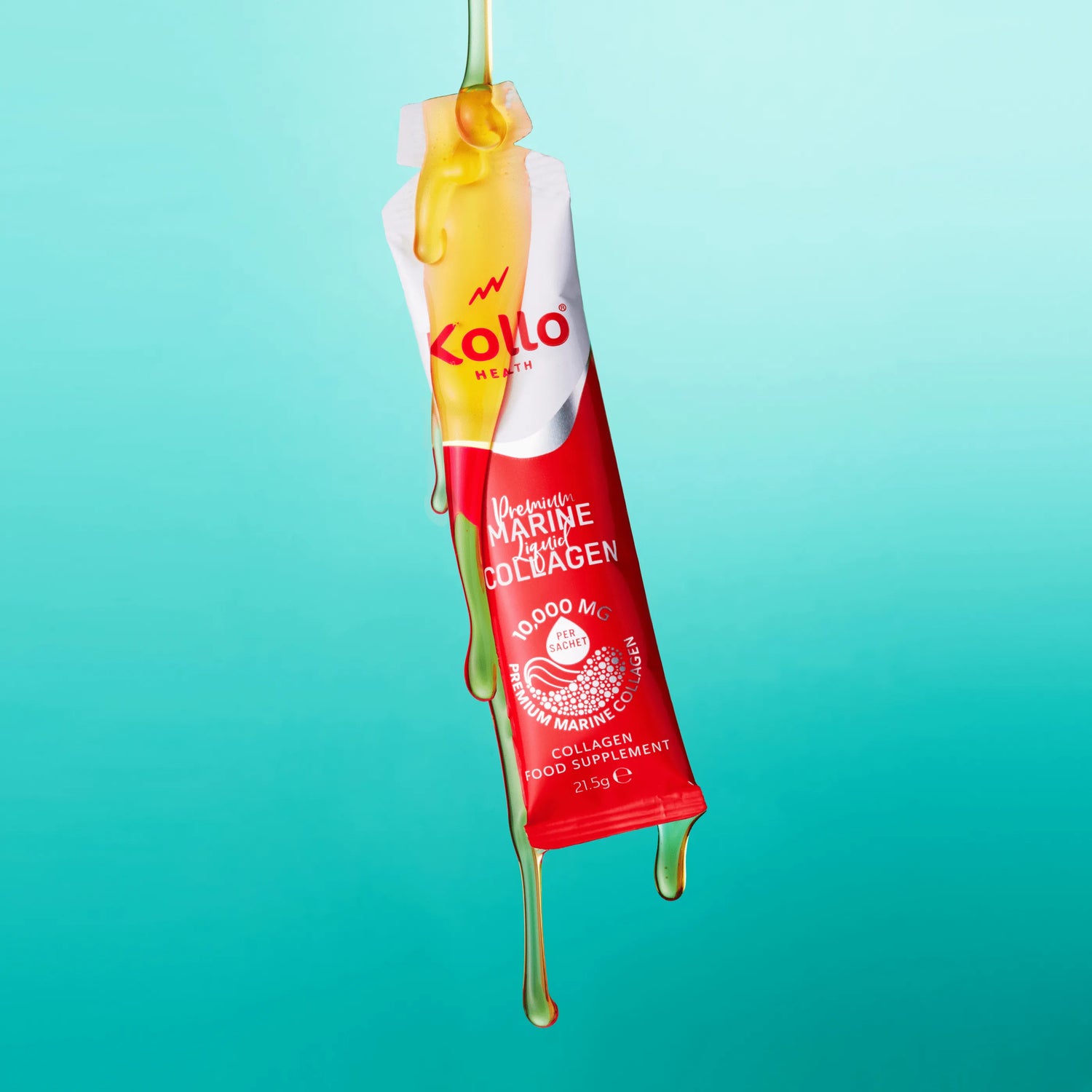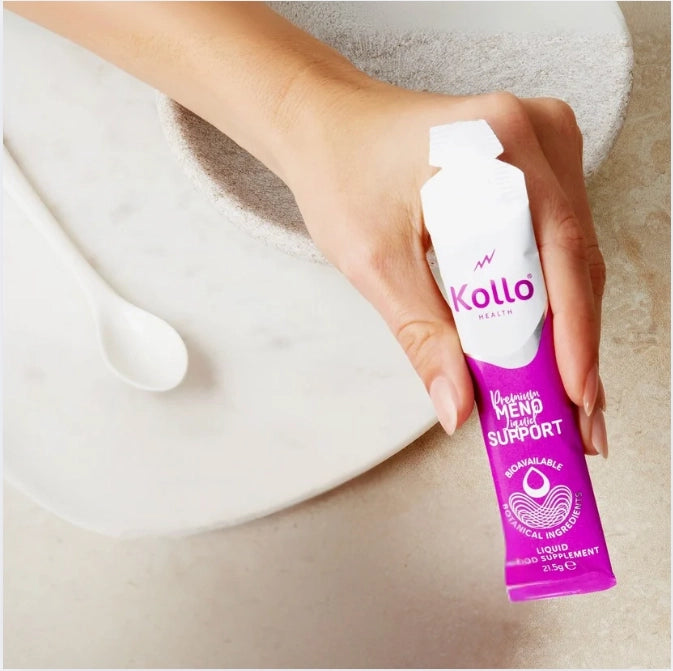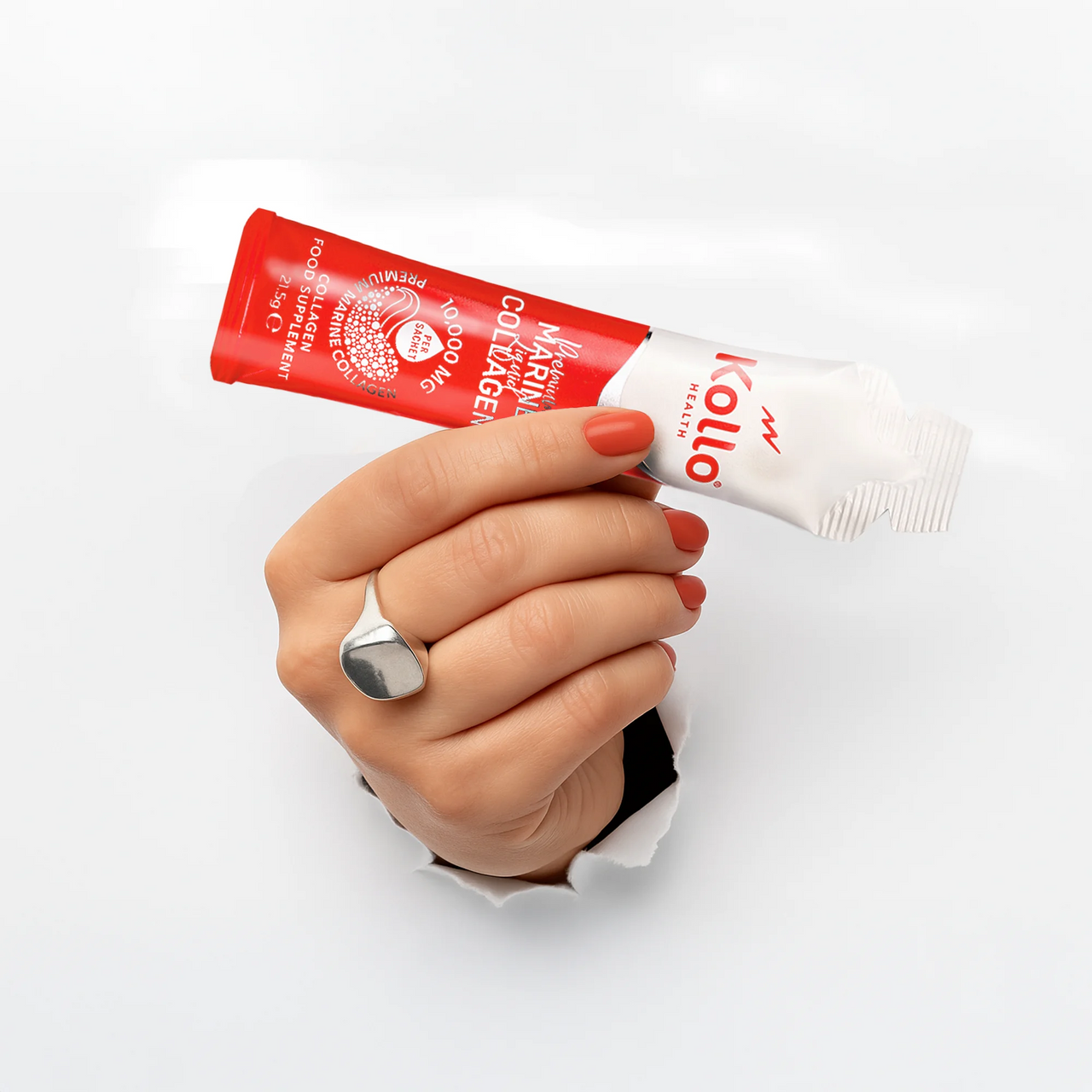Is 2000mg of Collagen Enough Per Day
There is quite a lot of talk about collagen dosage for people looking to improve their health or get younger-looking skin. Collagen supplements come with varying amounts of collagen peptides for your daily consumption so it can be confusing. A common dosage for many is 2 grams (or 2000mg) but is 2000mg of collagen enough? The answer is that this really depends on the quality of the supplement and the benefits you actually want to achieve from it.
Read on to learn more about different dosages and the benefits they may or may not offer.
What are the potential benefits of collagen supplements?
Collagen is a structural protein that is abundant in our bodies. It provides strength and suppleness to various connective tissues and also helps them to function properly. For example, it provides skin with firmness and elasticity whilst also enabling it to remain properly hydrated. And in our joints, it gives our tendons more resilience and makes cartilage more resistant to wear and tear damage. When collagen levels in our bodies start to drop, which happens with age, these connective tissues lose some of the integrity and we start to experience the signs of ageing. These include:
-
Fine lines and wrinkles
-
Sagging skin
-
Thinning, weakening hair and nails
-
Pain and stiffness in the joints
-
Loss of bone mass
All these things can make us look and feel older and the problems continue to get worse as we age. But collagen supplements are designed to supply our bodies with an abundance of the key nutrients needed to synthesise new collagen at an accelerated rate. The collagen peptides in the supplements contain amino acids like glycine, proline and hydroxyproline that are essential for collagen synthesis, all supplied in a consistent daily quantity for our bodies to harness. This increases collagen production and, over time, can slow or even reverse many of the early signs of ageing.
If you want to delay some of the symptoms listed above, and even make their impact less pronounced in the long-term, then collagen supplements are for you.
What makes a good collagen supplement?
This relates to the original question – is 2000mg of collagen enough? Well, when considering the factors that make up a good collagen supplement, dosage is certainly important. The research into collagen supplementation is still ongoing, but there have been numerous studies and reviews involving the benefits achieved using certain dosages. We will get into that in detail in the next section but for now, suffice to say, dosage is a crucial factor in finding a good collagen supplement.
But the dosage of the collagen peptides is irrelevant if that collagen is not high-quality. You want a supplement that contains collagen that is retained with a very high purity, free from toxic contaminants and with maximum bioavailability. The collagen should be processed through hydrolysis to break it down into peptides as they are very easy for our bodies to absorbed. The animal it comes from should not have been exposed to lots of chemicals and pollutants during its farming, and it should be a proven source of collagen that our bodies can work with easily. The science tells us that marine collagen has the highest bioavailability, so marine collagen supplements should be high on your list.
Another important consideration is the type of supplement you choose. Popular options include liquids, powders, tablets and topical creams/lotions:
-
Liquid: these supplements have high bioavailability and deliver a consistent daily dosage. The downside is that they tend to create a lot of waste because they come in individual sachets.
-
Powder: a popular choice for many, powders are often affordable and can be mixed with food or drinks. But preparing your daily dose can be a little time-consuming and there is no guarantee you will get a consistent dosage every single day.
-
Tablet: perhaps the most affordable option, tablets are a familiar way to take supplements for many. But lots of us struggle to swallow big pills, and they often contain a very low dosage with an unpleasant taste.
-
Topical cream: these make bold claims about their collagen capabilities but any collagen contained in them will not enter your body as the molecules are too large to penetrate the skin.
We believe liquid collagen supplements to be the best option all-round, but it is important that you choose a supplement type that is a good fit for you.
The big question: is 2000mg of collagen enough?
On to the question of dosage – is 2000mg of collagen enough to experience the full range of benefits? The short answer is no, probably not.
So why do some supplements only contain 2000mg of collagen peptides? There could be many answers to this question. For starters, it may be enough to experience some of the benefits of collagen supplementation. A lower dosage like this may also help keep the cost of the supplement lower, making it cheaper to produce and easier to market to consumers. Let’s look at what the existing research says about specific benefits and the dosage required to experience them.
Supporting skin health
Research has shown that collagen supplements are able to promote skin elasticity and collagen density in the dermis by increasing the body’s natural collagen production. There are various factors that impact how strong this effect will be, so our theory is that it is best to over-deliver on the dosage required.
The research has mainly focused on people of a more advanced age. It has shown that benefits to wrinkles, skin elasticity and hydration can be achieved with a dosage of 2-5g of collagen peptides. These benefits can start to materialise in as little as 6-8 weeks, but better results come from long-term usage.
Promoting joint health
Collagen is a structural component of our joints and many people start to experience joint discomfort as they approach midlife and beyond. Clinical studies have indicated that collagen supplements can help by boosting the collagen content in tendons, ligaments and cartilage.
The research has even covered people who suffer from osteoarthritis and shown some benefits could be possible. The dosage for this would usually be around the 5-10g region, and improvements come in after 3-6 months for most people.
Increasing bone density
Bone is 80% collagen and losing bone density puts us at risk of fractures or developing conditions like osteoporosis. Studies have been conducted with elderly participants, particularly menopausal or post-menopausal women.
The results indicate that collagen supplements can help preserve and restore bone density. The dosage for this comes in at the 8-12g range and it can take around 12 months to start seeing this benefit. Long-term usage is recommended to maintain these results.
Maximising your benefits
Essentially, when developing Kollo, our conclusion was that the research tells us that the higher the dosage, the better. There are no known side effects relating to taking ‘too much’ collagen so we set our dosage at the highest permitted – 10000mg (10g). This meets the requirements indicated by existing research to experience all the potential benefits of collagen supplements within the timeframes highlighted above.
We always wanted Kollo to be a potent supplement that will achieve maximum results for our customers, and we have pulled out all the stops to achieve that.
What makes Kollo stand out?
Kollo gives you 10g of pure, premium grade marine collagen every single day. It is supplied in a liquid suspension for maximum bioavailability and is fortified with B vitamins, vitamin C and l-lysine to further boost your collage production. Simply enter a sachet into a glass of water each day and it is ready to drink, with a sugar-free, natural tropical flavour to ensure you actually enjoy taking your supplement. We followed the science at every stage of development and selected only the highest-quality ingredients for our customers.
Since launching in 2020, Kollo has:
-
Attained Informed Sport certification to indicate quality and safety for athletes
-
Earned ‘Amazon’s Choice’ status on the world’s biggest online commerce platform
-
Won numerous awards
-
Been featured on ITV This Morning and in Women’s Running magazine
-
Sold over 1 million doses
-
Received over 2,000 5-star reviews from verified buyers
Kollo is the real deal with real science backing every aspect of its design. Our packaging is fully recyclable, including the sachets that contain the liquid, so we aim for maximum sustainability. With long-term use in combination with pro-collagen lifestyle changes, Kollo is a powerhouse for boosting your collagen levels.
Learn more
We encourage you to explore your options and find the collagen supplement that works for you. The Kollo website is loaded with information about our product, the science of collagen supplementation and collagen in general. Explore our customer reviews to read some stories of people’s experiences with Kollo and please peruse our blog to learn everything there is to know on the topic.
If you still have questions, don’t hesitate to get in touch and our team will be available to answer them.







